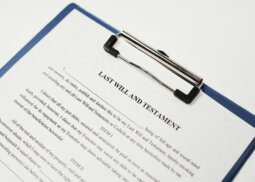Welcome to DLS Solicitors, your comprehensive legal guide. In this resource, we aim to provide you with an insightful guide on how to navigate the often complex issue of lost or destroyed wills. Dealing with a loved one’s estate is challenging enough without the added difficulty of a missing will. It’s important to approach this matter with a clear understanding and a step-by-step process.
Understanding the Implications of a Lost or Destroyed Will
When a will cannot be found after the death of an individual, it’s presumed under the law that the will has been deliberately destroyed. This presumption is not absolute, but it places the onus on the person asserting the will’s existence to prove otherwise. In the absence of a will, the estate is distributed according to the rules of intestacy, which may not reflect the deceased’s wishes.
Initial Steps to Take
- Conduct a thorough search: Before concluding that a will is lost or destroyed, conduct a comprehensive search. This includes checking with solicitors, banks, and any possible storage locations where the will might have been kept.
- Check for copies: If the original will cannot be found, look for copies. A solicitor’s copy or even drafts might provide evidence of the deceased’s intentions, although these are not without their legal challenges.
Legal Steps if the Will Remains Unfound
If, despite all efforts, the will remains unfound, legal steps must be taken to address the situation:
Applying for a Grant of Letters of Administration
In the absence of a will, an application for a Grant of Letters of Administration will need to be made. This grants legal authority to administer the estate according to the rules of intestacy. This process can be complex, and legal advice is recommended.
Proving the Lost Will
If there is evidence to suggest a lost will existed, it may be possible to apply to the court to have the contents of the lost will approved. This process requires substantial evidence, including witness statements and any copies of the will that can be found.
Preventative Measures to Avoid Future Issues
To mitigate the risk of a will being lost or destroyed in the future, consider the following steps:
- Secure storage: Keep the will in a secure location, such as a solicitor’s office or a bank’s safety deposit box. Ensure multiple trusted individuals are aware of its location.
- Regular updates: Regularly review and update your will, especially after major life events. This ensures that copies circulate among your legal representatives, reducing the risk of loss.
Conclusion
Dealing with a lost or destroyed will can be a distressing experience. However, with the right approach and expert legal guidance, you can navigate these challenges effectively. At DLS Solicitors, we recommend thorough preparation, clear communication with legal professionals, and taking preventative steps to ensure your will is preserved for the future.
Need Professional Help?
If you’re facing difficulties related to a lost or destroyed will, DLS Solicitors is here to support you. Our experienced team can provide the guidance and expertise you need to resolve your situation. Contact us today to learn more about how we can assist you.



